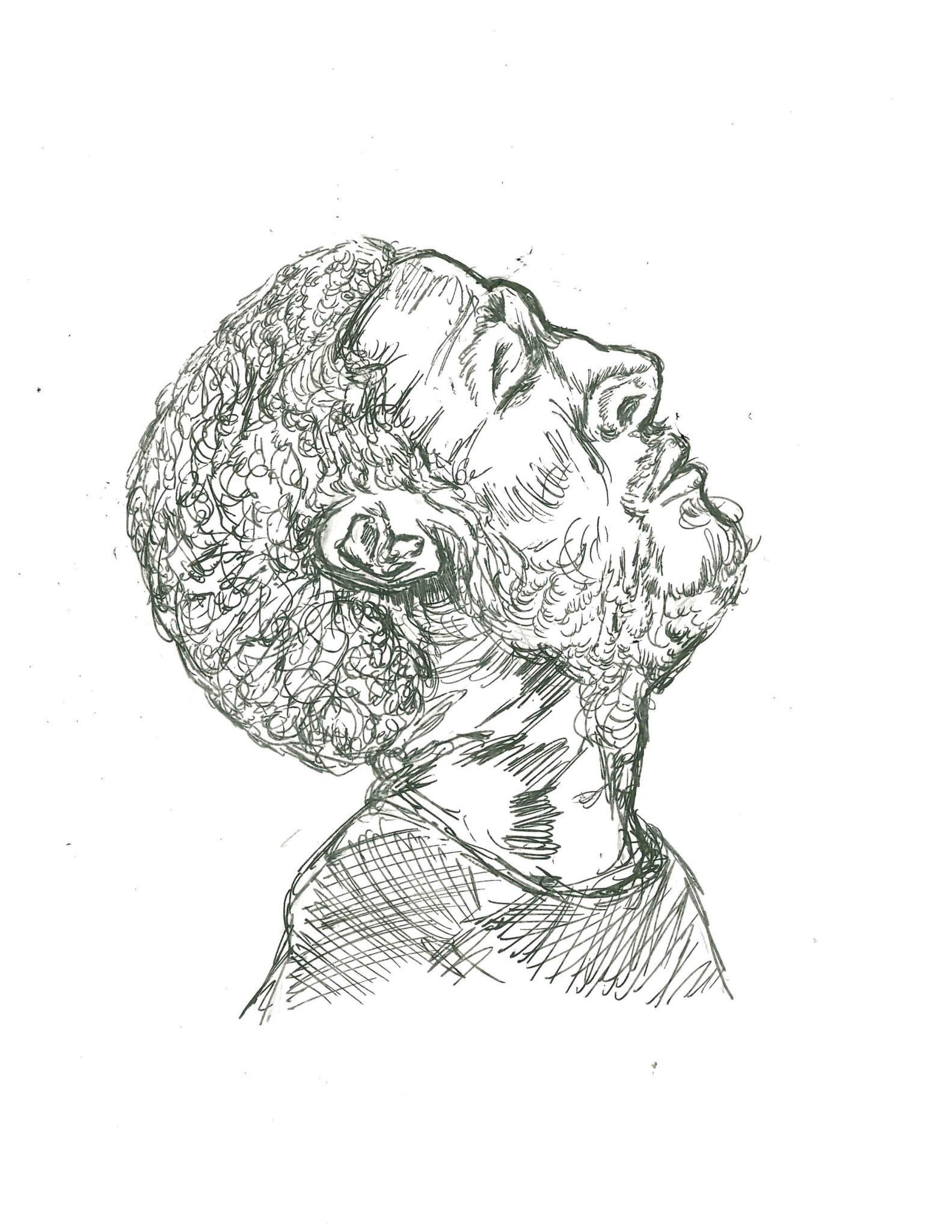
After showing his loosely autobiographical film “Blueprint” at the Whitney Humanities Center Sunday night, lead actor and co-writer Jerod Haynes expressed how incredible it was for him to be there, taking questions from the audience. Haynes assured his audience that the gesture was not mere formality. After living a disadvantaged childhood in Chicago’s South Side, he could hardly believe that he was standing before an audience at a screening of his film.
“Blueprint” became the brainchild of Haynes and director Daryl Wein the summer of 2016 after what Haynes described as a string of police brutality incidents. Haynes and Wein wanted to protest with art, creating a one-hour-and-sixteen-minute pseudo-documentary featuring Haynes, Tai’isha Davis, Sandra Adams-Monegain and Hayne’s friends and family in the Southside of Chicago. Haynes currently lives there, and, according to a biography for “On the Rise” magazine, “grew up playing sports which kept him from joining any street gang.”
Haynes’s “character,” Jerod, has a close friend who is murdered by police. Struggling to cope with his grief and anger, Jerod turns to alcohol and neglects his familial and romantic relationships (Jerod’s daughter is played by Haynes’s real daughter Jalaiya). Some of Jerod’s acquaintances push for a militant response to police brutality, while other community leaders organize reflective and activist events. Jerod, however, is skeptical of both avenues and the film ends with him finding solace in his family and church.
The movie layers scripted film with reality (the majority of the large cast are untrained actors performing improvised scenes), scratching the cinematic portrait away to reveal flecks of mirror. The crisp, honest directing and inclusion of civilian actors gives the film a homage-to-Chicago feel. However, while the film occasionally focuses on the city as a whole, its plot line is decidedly individual. In the Q&A session an audience member expressed frustration that the movie ended with Jerod’s religious salvation rather than a political or activist plan, to which Haynes reminded us that Jerod is one person.
Haynes said that he was raised to be very spiritual, and that Jerod’s religious redemption is reflective of the support he found and continues to find in church attendance. I think that the literal deus ex machina ending — with Jerod resolving all his personal problem by finding Jesus — is only unsatisfactory to those expecting a more climactic, activist-oriented finale.
This movie lives too close to reality for that kind of climactic finale, strangling its audience with such an authenticity that I hesitate to call it a “movie” at all. As Jerod falls into alcohol abuse, Jalaiya’s situation becomes precarious. In one scene, the child is awake and alone in her crib for most of the day while Jerod struggles with a hangover in the basement. Jerod gets mugged with a gun to his head in the movie’s last half hour, and would have been killed had his attacker’s gun not failed to go off.
Reflecting on whether or not the film is “hard to watch” and what that means for the audience, Haynes compares its difficult themes to his old aversion to the smell of “healthy foods,” a “fume,” as he put it, that he was disgusted by as a young adult because he didn’t have access to the foods growing up and couldn’t become used to their scent. Nonetheless, he had to overcome it.
Haynes is currently the lead of the Yale Repertory Theatre’s production of “Native Son,” and many cast members in attendance on Sunday supported him. When asked about the connection between Jerod and Bigger Thomas, his role in the play, Haynes said that the characters are linked by “manhood” and young people becoming responsible for their lives. With regard to “manhood” in the film, Haynes said the lack of a “blueprint,” the movie’s title, is a metaphor for the lost, uncertain coming-of-age process for young men in his community, who had no role models or a system structured to facilitate their success.
“Blueprint” contains a memorial to Curtis Posey, an actor in the film who died in June 2017.
Emily Schussheim | emily.schussheim@yale.edu







